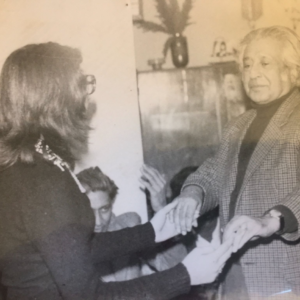“You can do anything you want.” A push towards happiness; a struggle for passion; an all or nothing endeavor; a disconnect from reality? This mentality—living in the moment and doing what one feels is right for them as opposed to socially accepted norms—seems to have spurred a collective distrust—or disgust rather—in the individuals that have embraced it; in the few individuals that have chosen a life of purpose. It makes one consider: are we so disconnected and so well trained by societal norms that we now feel guilt for enjoying ourselves? Have we not only forgotten how important it is, but actually how to stop and smell the roses?
We come to a number of transitionary or torpid periods in life, where the sense of purpose and fulfillment is all but lacking. Whether it is professional stagnation, unemployment, a break-up, a financial crisis, retirement or the death of a loved one, it becomes difficult to overcome the pain and resume everyday life in progression. In a recent program organized by Experience Corps, the group has discovered that a solid purpose for living can help people overcome the most crucial phases of their lives.
The program pairs people over the age of 55 with students in kindergarten through third grade to help them with their studies. What they discovered was not only unexpected but stirring. As expected, the test scores of the students improved drastically, but so did the mental and physical health of the mentors. Through the pairing, the senior tutors were able to overcome depression while their stamina, flexibility, physical mobility, and memory increased.
According to Eric Kim, a doctoral professional who is studying the link between physical health and social connection at the University of Michigan, one of the main reasons of the health benefits of the tutors is that they were given a purpose to live. Research has shown that those with a greater sense of purpose are more prone to choose preventative care services. Those with a goal to meet in the near future are more optimistic and involved in their lives.
This leads to an idea of a cultural change in medicine, in focusing on positive psychology. Though not a novel idea, preventative therapies are hugely undermined, and not to be confused with a pursuit of happiness, but rather cultvating purpose.











Leave a reply